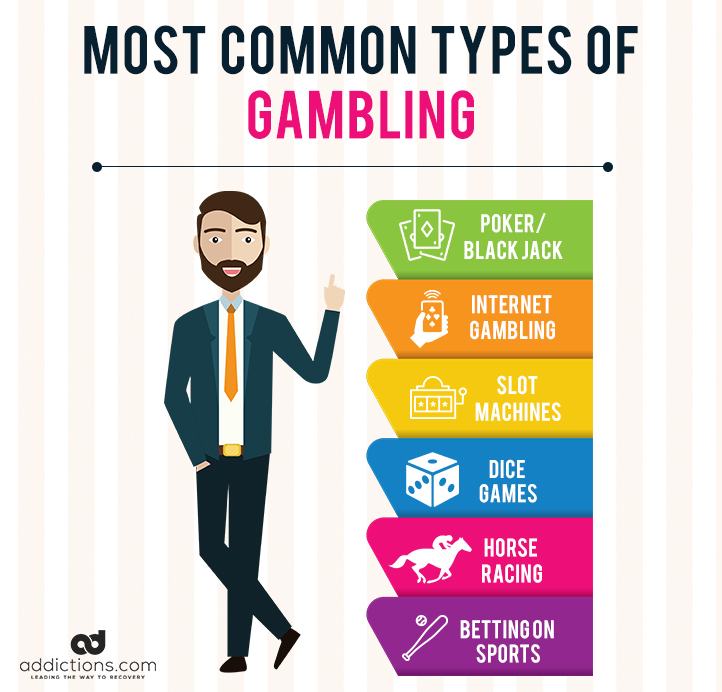The National Council on Problem Gambling (NCPG) estimates that although approximately 5 million Americans meet the criteria for compulsive gambling, only around 8 percent of these individuals will ever seek help for their problem. Yet according to the NCPG, gambling addiction. Compulsive gambling, also called gambling disorder, is the uncontrollable urge to keep gambling despite the toll it takes on your life. Gambling means that you're willing to risk something you value in the hope of getting something of even greater value.Gambling can stimulate the brain's reward system much like drugs or alcohol can, leading to addiction. If you have a problem with compulsive gambling, you may.
Gambling addiction – also known as 'problem' or 'compulsive gambling' – is the condition of feeling compelled to gamble, and/or gamble excessive amounts, despite an awareness of the negative consequences of doing so and the desire to stop. It is an addictive disorder with many similarities to certain non-physical drug addictions, and has its basis in a number of psychological mechanisms – such as reward processing – which play a key role in the development of those addictions; as a result, some aspects of treatment of gambling addiction are also similar to the treatment of drug addiction, including the application of various therapy models and the possible benefits of residential rehabilitation.
Problem gambling is sometimes described as being potentially the most expensive form of addiction, with no upper limit on how much it can cost the addict other than how much money they can obtain: gambling addicts have been known to lose, quite literally, everything they own, including family homes (thus rendering both themselves and their families destitute). The potential impact upon an addict's loved ones is therefore catastrophic, and anyone who believes they have a gambling problem should reach out for help immediately before their situation approaches such worst-case scenarios.
Signs And Symptoms
As with any addiction, every case of problem gambling is unique, and what might look like a serious case in one person might well be nothing to worry about in another. However, certain signs could indicate that you – or someone close to you – are struggling with a gambling addiction; if any of the following describe you, you should consider contacting an addiction specialist to discuss your condition.
- You need to gamble with increasingly high stakes to experience the same excitement.
- You lie to people close to you about the regularity and/or scale of your gambling.
- You gamble to make yourself feel better.
- Your thoughts are dominated by gambling or matters related thereto, even at very inappropriate times.
- You have tried repeatedly to cut down your gambling or to stop altogether.
- You have lost an important relationship, job, or place in education because of gambling.
- You feel irritable when you are unable to gamble.
- You have got yourself into significant debt as a result of your gambling habit.
- You have lost at least one valuable asset (a car, house, family heirloom etc) purely through gambling.
- You have committed a crime or crimes to pay off a gambling debt or to fund future gambling.
Short-Term Effects
Gambling causes extremely intense psychological effects. Firstly, the 'thrill' of placing a bet can be all but overwhelming – especially if the stakes are very high, with hugely significant consequences win or lose (for example, betting a sum of money that could either pay off a mortgage or lose the gambler's home) – and can result in anxiety attacks, fainting, and/or conditions related to blood pressure which can lead to stroke, heart attack or seizures.
The exhilaration of winning creates a 'rush' of chemicals in the brain including norepinephrine and serotonin which cause pleasure and happiness – sensations which the gambler wishes to repeat, driving repeat behaviour; meanwhile, losing even a small bet creates a temporary deficiency of those chemicals and thus a pronounced feeling of displeasure (which the gambler may seek to dispel through winning a new bet), while losing a high-value bet can result in intense despair, especially if the impact on the gambler's life is substantial and permanent.
This despair may be accompanied by various other psychological and physical phenomena such as anxiety attacks, dizziness, and shortness of breath, and may be so extreme that the gambler may experience a temporary loss of mental and emotional control, during which period of diminished responsibility they may give in to temptations to commit suicide, or even to commit acts of extreme violence against others (for example, murdering loved ones rather than facing up to the reality that their gambling addiction has resulted in destitution.
Withdrawal Symptoms
Because problem gambling is not a physical addiction – ie, the gambler does not develop a physical dependence upon a specific substance – the idea of withdrawal symptoms may sound strange, even absurd; however, alongside a number of psychological symptoms, some problem gamblers will indeed display various psychosomatic manifestations of withdrawal.
The most obvious – and potentially problematic – withdrawal symptom is an intense craving to gamble, which can seize the gambler immediately after their last bet (especially if that resulted in a heavy loss and consequent disturbance of brain chemistry as discussed above). As with substance abuse, cravings may persist for a long time – potentially years – after the last bet and constitute the biggest danger to a gambler's recovery.
Other symptoms of withdrawal – which typically will begin to manifest anywhere from a few seconds to a couple of days after the last bet – include irritability, restlessness, aggression and depression; in severe cases, the gambler may experience headaches, insomnia, panic attacks and even breathing and digestive issues.

Recovery Treatment
There are various ways a problem gambler may approach their desire to overcome their addiction, including attempting to resolve it independently. However, most gambling addicts find it impossible to stop permanently without professional help, and there are numerous therapies which have proven effective in this regard. It's vital to bear in mind that as every addict is unique, the precise combination, tone and frequency of therapies which will be most appropriate for any given individual will also vary, and a problem gambler may have to experiment with a number of different therapeutic approaches before finding the one which works best for them.
At Primrose Lodge, we provide a broad range of therapy models, including:

Recovery Treatment
There are various ways a problem gambler may approach their desire to overcome their addiction, including attempting to resolve it independently. However, most gambling addicts find it impossible to stop permanently without professional help, and there are numerous therapies which have proven effective in this regard. It's vital to bear in mind that as every addict is unique, the precise combination, tone and frequency of therapies which will be most appropriate for any given individual will also vary, and a problem gambler may have to experiment with a number of different therapeutic approaches before finding the one which works best for them.
At Primrose Lodge, we provide a broad range of therapy models, including:
- Individual Therapy
- Group Therapy
- Family Therapy
- 12-Step Therapy
- Cognitive Behavioural Therapy (CBT)
- Art Therapy
- Meditation
Rehab Benefits
Residential rehabilitation – 'rehab' – has been instrumental in getting countless thousands of addicts of all types into recovery and back on the path to happy, healthy lives – and this is true for a growing number of gambling addicts in particular. At Primrose Lodge, our staff have substantial experience in treating gambling addicts and understand the specific challenges of this devastating illness. Some of the benefits Primrose Lodge can offer include:
- Excellent medical care available 24/7.
- A tranquil, attractive environment in which an addict can focus on their recovery without the temptations of the outside world.
- Complete confidentiality.
- A broad range of therapies provided on site.
- Experienced, friendly, non-judgemental staff.
- Bespoke dietary and fitness plans: 'healthy body, healthy mind'.
- Group therapy comprising people with similar experiences who can give advice and support.
- A year's free aftercare.
Gambling Addiction Symptoms Questionnaire
Get Help Today
Medication For Gambling Addiction
Gambling may not pose the same immediately obvious health risks as some other forms of addiction, but it can destroy lives as thoroughly and as rapidly as any – and the proliferation in the UK in recent years of bookies and online betting sites has seen more people than ever before brought to rock bottom by their gambling addictions. However, if you're a problem gambler and you're desperate to avoid becoming another tragic statistic, don't despair: help is at hand: simply reach out to us at Primrose Lodge today, and one of our addiction specialists can discuss your situation and help you take the first crucial steps in getting your life back on track.

